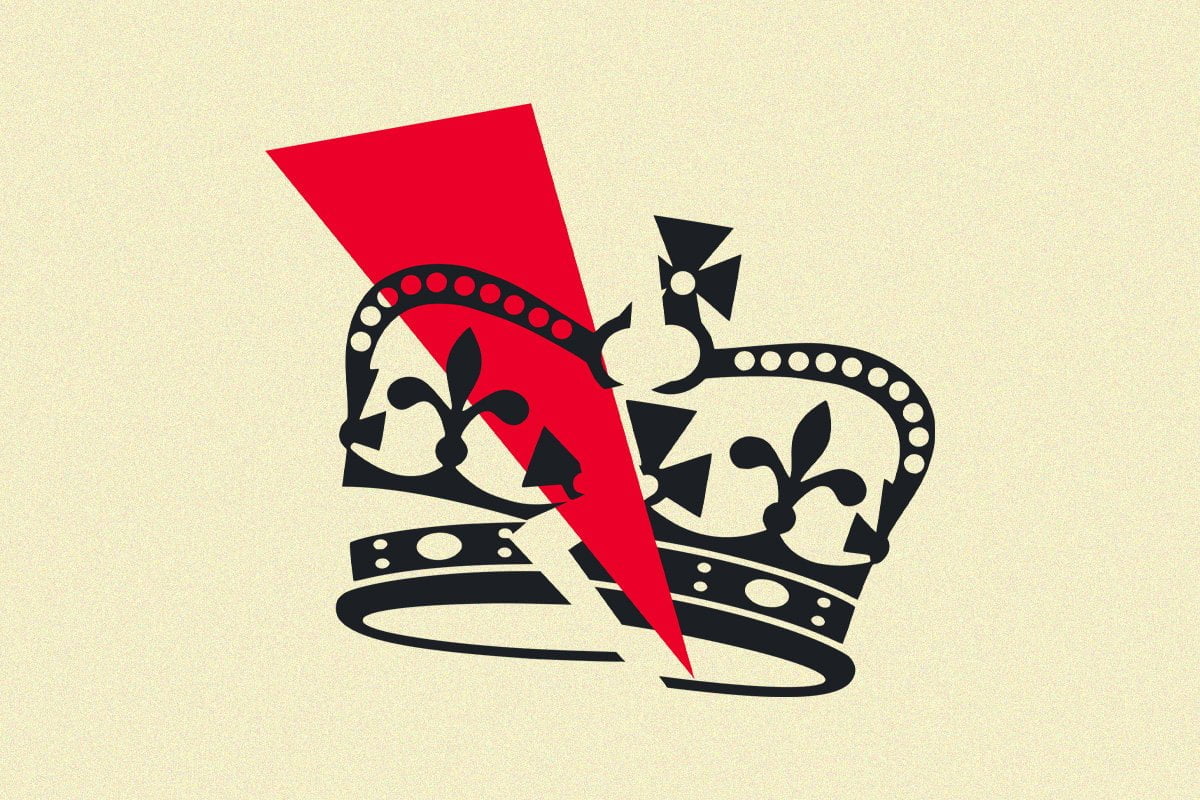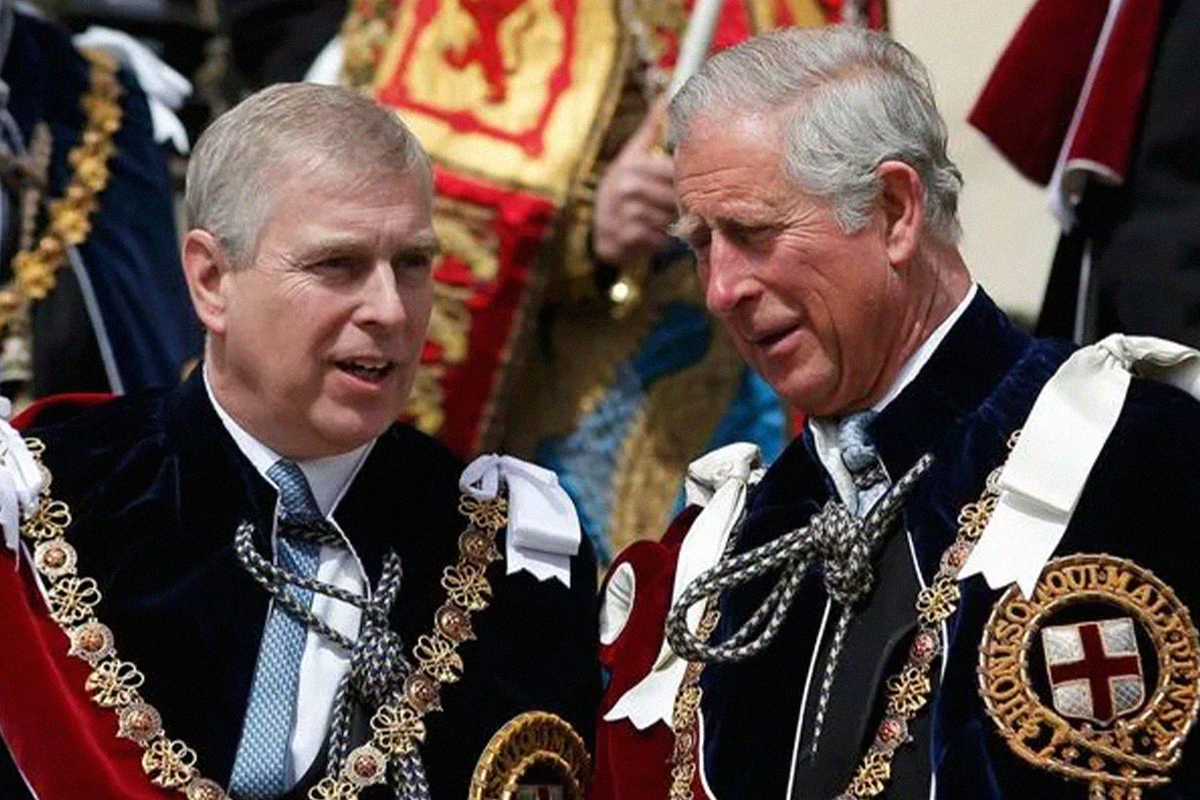‘Mr. Andrew Mountbatten Windsor’.
The deposed Prince’s new name has that same empty, quotidian ring to it as ‘Charles Stuart’, ‘Nicholas Romanov’, or ‘Citizen Louis Capet’. No more ‘Duke’ this or ‘Earl’ that, and certainly no more ‘His Royal Highness’. Just plain-old, common-as-muck ‘Andy’.
There’s a lot in a name, despite what Shakespeare says. These aristocratic titles and epithets play an important role. They are designed to remind us of how lowly and servile we all are as subjects of the Crown, compared to our supposedly natural superiors – sitting on their gilded thrones, dressed in ermine furs and colonial jewels.
When all that is stripped away in the space of a few days, it reminds the nation that royalty isn’t a divine force bestowed by God; that the right to rule does not run like blue blood through the veins of noble families. If a prince can be deposed, then why not a king?
The prince and the paedo
It’s not common, therefore, for the Royal Family to take the extreme measure of dressing-down one of their own. But that’s exactly what unfolded in the past week, in a very public way.
The sordid details of Andrew’s affairs are well-known to everyone by now. The scandal surrounding his friendship with billionaire paedophile Jeffrey Epstein, and his alleged rape of trafficked teenager Virginia Giuffre, has been boiling over for years.

No amount of hush-money and stonewalling could keep a lid on this vile degeneracy. The revelations in Giuffre’s posthumous memoir were simply one disgrace too many for the beleaguered House of Windsor. Andrew had to go.
Don’t feel too bad for him, though. Mr. Mountbatten will be safely squirrelled away to the Sandringham Estate – a private country retreat with 80 square kilometres of gardens, the same size as the city of Nottingham. It will be a step down from the 30-room Royal Lodge, but we’re sure he’ll settle in nicely.
Plummeting support
Leaving aside their insane wealth and privilege for one moment, however, the Royals have had a tough time of it lately.
From Harry and Meghan’s messy exit from ‘The Firm’ over racism and bullying, to Queen Elizabeth’s long-anticipated exit from the world of the living, it’s been one annus horribilis after another.
The Royal Family are no strangers to scandals. But for decades, public support for the monarchy dropped no lower than a respectable 80 percent. They were able to weather the storm.
Queen Elizabeth II, in particular, remained a paragon of stability to the very end; a symbol of better, more prosperous times.
But those days are over. According to polling data, support for the monarchy plummeted to 60 percent in June, and has just recently slipped below 50 percent – for the first time since records began.
What’s more, three out of four think that Andrew should face a criminal investigation over allegations of sexual abuse. And four in ten Britons say they’d prefer to scrap the Royal Family altogether!
It’s clear that the Andrew scandal has dredged up a lot of this resentment. Some conservative mouthpieces might dismissively argue that this is just a small blip that will soon be forgotten about; that, in reality, “the British monarchy has never been more secure”.
But there’s a wider process at play here. The crisis of the capitalist system is fuelling deep anti-establishment anger and distrust, directed against aloof, arrogant, out-of-touch politicians of all stripes; against the media and big business; and even against the institutions of bourgeois democracy.
As a very visible symbol of privilege, inequality, imperialism, and arrogance, the monarchy has similarly fallen into the crosshairs of popular discontent. This collapse in support is inextricable from the wider crisis of the capitalist establishment. It’s going nowhere soon.
Daylight upon magic
Those on the left who oppose the British monarchy often describe it as simply an expensive tourist attraction, or an anachronistic feudal relic. Both of these things are undoubtedly true. But this doesn’t get to the heart of the matter.
Far from being a relatively harmless hangover, the monarchy plays a key role for the ruling class. The Crown lies at the heart of the modern British state. It is the bedrock of the constitution.
From the police, to the courts, to the armed forces; from His Majesty’s Government and Loyal Opposition, to His Most Honourable Privy Council: the whole state apparatus lies in the hands of the King.
Barring the occasional hiccup, these royal powers are kept in reserve, operating behind the scenes.
But when the class struggle intensifies to a fever pitch, the reactionary role of the Crown will become clear, as the ruling class attempts to use the powers of the monarchy as a last-ditch attempt to save their system; as a focal point for counter-revolutionary forces, in defence of ‘King and Country’.
In order for the monarchy to retain its potency as a reserve weapon for the ruling class, however, it must maintain the illusion that it rests above the sordid world of parliamentary politics. It must assume an air of mystique and aloofness.

As the Victorian constitutionalist Walter Bagehot once aptly observed:
“Above all things, our royalty is to be reverenced, and if you begin to poke about it you cannot reverence it. When there is a select committee on the Queen, the charm of royalty will be gone. Its mystery is its life. We must not let in daylight upon magic.”
Unfortunately for King Charles and co., each fresh scandal is pulling back the curtains on this revered institution, exposing the dark underbelly of the Palace to the light of public opinion.
Far from being a source of stability, the monarchy is becoming a conduit for all of the widespread revulsion at the capitalist establishment.
Abolish the monarchy!
The Revolutionary Communist Party stands for the total abolition of the monarchy, along with the House of Lords, the Privy Council, and every other vestige of feudal backwardness. Nothing less will do.
But this will never come about through gentle reforms and referendums, nor through parliamentary pressure. The British capitalist class understands that such sweeping constitutional changes would throw into question their entire system, threatening their power and privileges.
Besides, as communists, we aren’t interested in swapping out one set of elites for another. We want nothing less than a new Commonwealth: a socialist republic, cleansed of kings and princes, and of all the parasites who leech off of workers’ labour.
So we say: Abolish the monarchy! Expropriate the royals, bankers, and billionaires! For a socialist republic!






